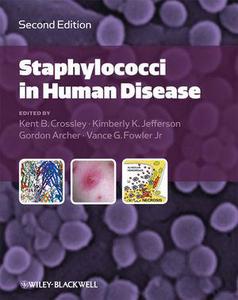 Staphylococci in Human Disease, Second Edition By
Staphylococci in Human Disease, Second Edition By2009 | 639 Pages | ISBN: 1405163321 | PDF | 40 MB
Staphylococci remain the most important cause of hospital-acquired infections in the U.S. and MRSA has become the most common cause of skin and soft tissue infection in many parts of the world. There is now a much greater understanding of the physiology and evolution of the staphylococci and this new edition reflects the rapid advancements in knowledge about this pathogen and provides a comprehensive review from both clinical and basic science perspectives. The first section addresses the basic biology of the staphylococci, their molecular genetics, host defenses and host evasion, virulence determinants, mechanisms of antibiotic resistance, and laboratory techniques. The second section deals with epidemiology, and the third section provides an overview of the varied clinical manifestations of human staphylococcal infections. The fourth section covers prevention and treatment of these often life-threatening infections. Written by experts from around the globe, this book is essential reading for all clinicians and basic scientists studying the staphylococci.Content: Chapter 1 The Biology of Staphylococci (pages 1-18): Greg A. Somerville and Richard A. ProctorChapter 2 Genomics of the Staphylococci (pages 19-30): Steven R. GillChapter 3 Evolution and Taxonomy of Staphylococci (pages 31-64): Barun Mathema, Jose R. Mediavilla, Liang Chen and Barry N. KreiswirthChapter 4 Molecular Basis of Pathogenicity (pages 65-108): Mark S. Smeltzer, Chia Y. Lee, Nada Harik and Mark E. HartChapter 5 Adaptation to Stress: Biofilms and Small?Colony Variants (pages 109-124): Karl M. Thompson and Kimberly K. JeffersonChapter 6 Exotoxins (pages 125-146): Patrick M. Schlievert, John K. McCormick, Gregory A. Bohach and Douglas H. OhlendorfChapter 7 Host Defense against Staphylococcal Infection (pages 147-169): Hattie D. Gresham and Timothy J. FosterChapter 8 Resistance to ??Lactam Antibiotics (pages 170-192): Brigitte Berger?Bachi, Maria Magdalena Senn, Miriam Ender, Kati Seidl, Judith Hubscher, Bettina Schulthess, Roni Heusser, Patricia Stutzmann Meier and Nadine McCallumChapter 9 Resistance to Glycopeptides (pages 193-209): Keiichi HiramatsuChapter 10 Resistance to Other Agents (pages 210-234): Jacob Strahilevitz and David C. HooperChapter 11 Issues in the Identification and Susceptibility Testing of Staphylococci (pages 235-252): Betty A. ForbesChapter 12 Colonization with Staphylococcus Aureus and the Role of Colonization in Causing Infection (pages 253-271): Henri A. VerbrughChapter 13 Epidemiology of Community?Associated Staphylococcus Aureus Infections (pages 272-289): Rachel J. Gorwitz and John A. JerniganChapter 14 Epidemiology of Healthcare?Associated Staphylococcus Aureus Infections (pages 290-309): Andrew E. Simor and Mark LoebChapter 15 Epidemiology of Coagulase?Negative Staphylococci and Infections Caused by These Organisms (pages 310-332): Kathie L. Rogers, Paul D. Fey and Mark E. RuppChapter 16 Staphylococcus aureus Bacteremia and Endocarditis (pages 333-345): Zeina A. Kanafani, Sara E. Cosgrove and Vance G. FowlerChapter 17 Surgical?Site Infections and Surgical Prophylaxis (pages 346-362): Deverick J. Anderson and Keith S. KayeChapter 18 Infections of Intravascular Catheters and Vascular Devices (pages 363-377): Hidetaka Yanagi and Robert J. SherertzChapter 19 Skin and Soft Tissue Infections (pages 378-394): Martin E. Stryjewski, Esteban C. Nannini and G. Ralph CoreyChapter 20 Central Nervous System Infections (pages 395-413): Karen L. RoosChapter 21 Diseases of the Eye (pages 414-423): Linda A. FickerChapter 22 Osteomyelitis and Other Bone and Joint Infections (pages 424-443): Odette C. El Helou, Elie F. Berbari and Douglas R. OsmonChapter 23 Staphylococcal Pneumonia (pages 444-454): Ethan Rubinstein and Marin H. KollefChapter 24 Urinary Tract Infections (pages 455-469): S. Gatermann and Kent B. CrossleyChapter 25 Toxic Shock Syndrome (pages 470-483): Aaron DevriesChapter 26 Toxin?Mediated Syndromes (pages 484-496): Tristan Ferry and Jerome EtienneChapter 27 Staphylococcal Diarrhea and Enterocolitis (pages 497-504): Mark H. WilcoxChapter 28 Infections in Immunocompromised Patients (pages 505-520): Lisa E. Davidson and Helen W. BoucherChapter 29 Clinical Manifestations of Community?Acquired MRSA Infections (pages 521-537): Brian S. Schwartz and Henry F. ChambersChapter 30 Elimination of Staphylococcus Aureus Carriage: Importance and Strategies (pages 539-569): Loreen A. Herwaldt and John M. BoyceChapter 31 Treatment of Staphylococcal Infections (pages 570-593): Kent B. Crossley and Joseph JohnChapter 32 Vaccine?Based Strategies for Prevention of Staphylococcus Aureus Infection (pages 594-611): Adam C. Schaffer and Jean C. Lee



![S.T.A.L.K.E.R. 2 / STALKER 2: Heart of Chornobyl - Ultimate Edition (2024) [+UPDATE 23.12.2024 - v1.1.3] ElAmigos / Polska wersja językowa](https://i.postimg.cc/Zqd8RWGY/UZG8PBE.jpg)



































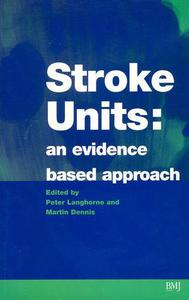
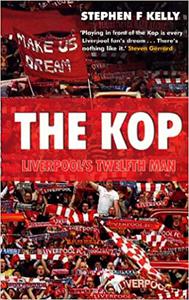
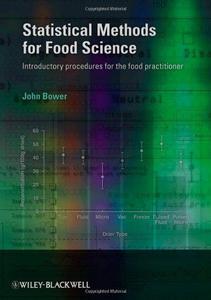
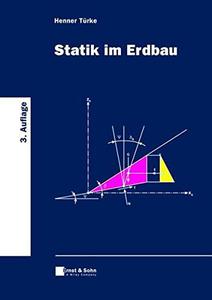



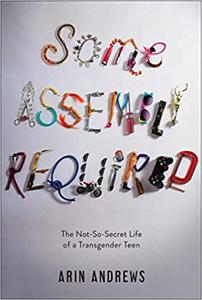
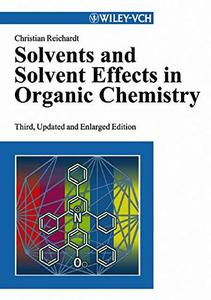







![David Gilmour - Luck and Strange (2024) [FLAC]](https://i.imgur.com/everaBc.jpeg)
![Męskie Granie Orkiestra - Męskie Granie 2024 (2024) [FLAC]](https://i.imgur.com/FAyOxrM.jpeg)
![The Rolling Stones - Hackney Diamonds (2023) [FLAC]](https://i.imgur.com/wCkyyUN.jpg)
![Lady Gaga - Harlequin (2024) [FLAC]](https://i.imgur.com/dcgIA8D.jpeg)
![Natalia Kukulska - Dobrostan (2024) [FLAC]](https://i.imgur.com/bdljG3O.jpeg)
![Kaśka Sochacka - Ta druga (2024) [FLAC]](https://i.imgur.com/hORQKvn.jpeg)
![Kuba Sienkiewicz - Pani Bóg (2024) [FLAC]](https://i.imgur.com/qijCx8Z.jpeg)
![Lanberry - Heca (2024) [FLAC]](https://i.imgur.com/8P7QfeR.jpeg)
![Sara James - PLAYHOUSE (2024) [FLAC]](https://i.imgur.com/m4f8OKg.jpeg)
![Grzegorz Hyży - EPILOG (2024) [FLAC]](https://i.imgur.com/8DA2sBr.jpeg)
![Myslovitz - WIECZORAMI CHŁOPCY WYCHODZĄ NA ULICE (2024) [FLAC]](https://i.imgur.com/l9mMtIG.jpeg)
![Krzysztof Zalewski - ZGŁOWY (2024) [FLAC]](https://i.imgur.com/vh48RAc.jpeg)
![Krzysztof Cugowski - Wiek to tylko liczba (2024) [FLAC]](https://i.imgur.com/SBzgqe2.jpeg)
![Nosowska - Kasia i Błażej (2024) [FLAC]](https://i.imgur.com/mObvVXQ.jpeg)
![sanah - Pianinkowe Kaprysy (2024) [FLAC]](https://i.imgur.com/pVjjPAa.jpeg)
![Kwiat Jabłoni - Pokaz slajdów (2023) [FLAC]](https://i.imgur.com/diERHfZ.jpg)
![Robert Cichy - Spacer po Warszawie (2024) [FLAC]](https://i.imgur.com/ixleU9o.jpeg)
![Viki Gabor - Terminal 3 (2024) [FLAC]](https://i.imgur.com/Q1KCnDs.jpeg)
![Sanah - Kaprysy (2024) [FLAC]](https://i.imgur.com/71OZm4h.jpeg)
![Męskie Granie Orkiestra - Męskie Granie 2023 (2023) [FLAC]](https://i.imgur.com/U4YHo8d.jpg)




